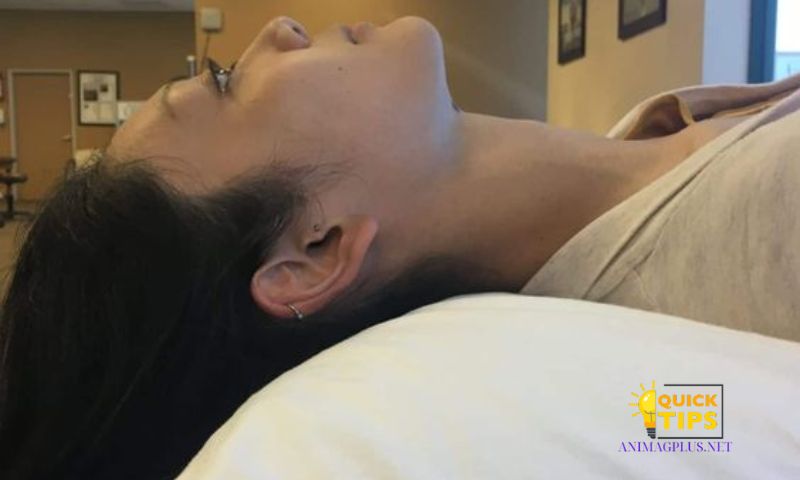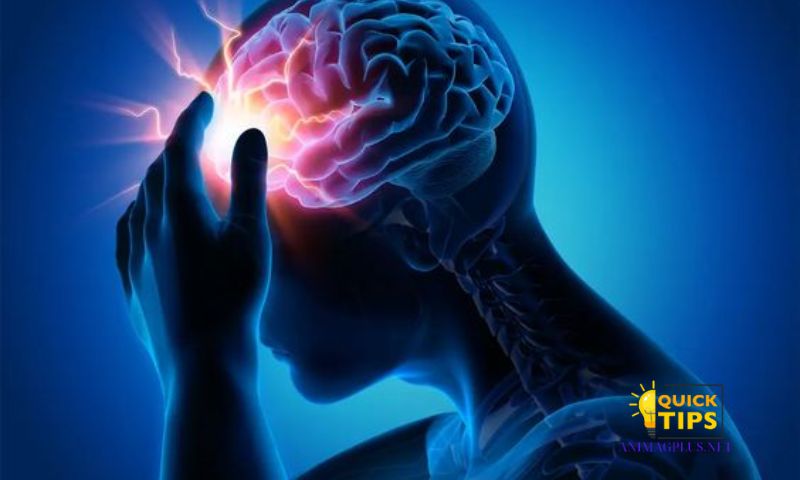Headaches are a common ailment that affects millions of people worldwide. They can range from mild discomfort to debilitating pain, impacting daily activities and overall quality of life. Understanding how to effectively relieve headaches is essential for maintaining well-being. In this comprehensive guide, Animagplus.net will explore various tips to relieve headaches, including immediate relief methods, long-term prevention strategies, and natural remedies.
Common Causes of Headaches

Headaches can stem from various causes, and identifying these can help in preventing them. Some of the most common causes include:
Stress and Tension
Stress and tension are major contributors to headaches. When we are stressed, our muscles can tense up, particularly in the neck and shoulders, leading to tension headaches.
Dehydration
Lack of adequate hydration is another common cause of headaches. The brain is highly sensitive to changes in hydration levels, and dehydration can lead to headaches.
Poor Posture
Sitting or standing with poor posture for extended periods can strain the muscles and lead to headaches. This is particularly common in individuals who work at desks or use computers for long hours.
Lack of Sleep
Inadequate sleep or poor sleep quality can trigger headaches. The body and mind need sufficient rest to function properly, and a lack of sleep can lead to a variety of health issues, including headaches.
Dietary Triggers
Certain foods and beverages can trigger headaches in some individuals. Common dietary triggers include alcohol, caffeine, processed meats, and foods containing monosodium glutamate (MSG).
Immediate Relief Tips
When a headache strikes, finding immediate relief is crucial. Here are some effective tips to relieve headaches quickly:
Rest and Relaxation
Taking a break and allowing your body to rest can significantly alleviate headache symptoms. Techniques for relaxation, such as deep breathing exercises and meditation, can help reduce stress and tension, providing relief.
Hydration
Drinking water is one of the simplest yet most effective ways to relieve headaches caused by dehydration. Ensure you are drinking enough water throughout the day to stay hydrated.
Cold and Warm Compresses
Applying a cold or warm compress to the forehead or the back of the neck can help reduce headache pain. Cold compresses are generally effective for migraine headaches, while warm compresses can help with tension headaches.
Over-the-Counter Medication
Over-the-counter (OTC) pain relievers, such as ibuprofen, acetaminophen, and aspirin, can provide quick relief from headaches. However, it is essential to use them as directed and not to rely on them excessively.
Long-term Prevention Strategies
Preventing headaches from occurring in the first place is the best approach. Here are some long-term strategies to consider:
Healthy Lifestyle Choices
Maintaining a healthy lifestyle can significantly reduce the frequency and severity of headaches. Regular exercise, a balanced diet, and avoiding known headache triggers can all contribute to overall health and headache prevention.
Stress Management
Managing stress is crucial in preventing headaches. Techniques such as yoga, mindfulness meditation, and deep breathing exercises can help reduce stress levels and prevent tension headaches.
Sleep Hygiene
Ensuring you get enough quality sleep is vital for preventing headaches. Establishing a regular sleep schedule, creating a relaxing bedtime routine, and ensuring a comfortable sleep environment can improve sleep quality and reduce headache frequency.
Posture and Ergonomics
Maintaining good posture and making ergonomic adjustments to your workspace can help prevent headaches caused by muscle strain. Ensure your computer monitor is at eye level, use a supportive chair, and take regular breaks to stretch.
Natural and Alternative Remedies

In addition to conventional methods, natural and alternative remedies can provide effective relief for headaches:
Essential Oils
Essential oils, such as peppermint and lavender, have been found to relieve headaches. Applying a few drops of essential oil to the temples or inhaling the scent can provide relief.
Herbal Teas
Certain herbal teas, such as chamomile and ginger, have soothing properties that can help relieve headache symptoms. Drinking a warm cup of herbal tea can be a relaxing way to alleviate headache pain.
Acupuncture and Acupressure
Acupuncture and acupressure are traditional Chinese medicine practices that involve stimulating specific points on the body to relieve pain. These methods can be effective in reducing the frequency and severity of headaches.
Massage Therapy
Massage therapy can help relieve muscle tension and improve circulation, providing relief from headaches. Techniques such as scalp massage, neck massage, and trigger point therapy can be particularly beneficial.
When to See a Doctor

While most headaches are not serious and can be managed with self-care, it is important to recognize when medical attention is necessary:
Warning Signs of a Serious Headache
Seek medical attention if you experience severe headache pain, sudden onset of a headache, or headaches accompanied by other symptoms such as confusion, difficulty speaking, or vision changes.
Types of Headaches That Require Medical Attention
Certain types of headaches, such as migraines, cluster headaches, and chronic daily headaches, may require medical treatment. If you experience frequent or severe headaches, it is important to consult a healthcare professional for a proper diagnosis and treatment plan.
Chronic Headache Management
If you suffer from chronic headaches, working with a healthcare provider to develop a long-term management plan is essential. This may include lifestyle changes, medications, and other treatments to reduce the frequency and severity of headaches.
Conclusion
Headaches can significantly impact your daily life, but with the right strategies, you can find effective relief and prevent future occurrences. By understanding the common causes of headaches, implementing immediate relief techniques, adopting long-term prevention strategies, and exploring natural remedies, you can take control of your headache symptoms. Remember, if you experience severe or frequent headaches, it is important to seek medical attention to rule out any underlying conditions and develop an appropriate treatment plan.
FAQs
What are some quick tips to relieve headaches?
Quick tips to relieve headaches include resting, staying hydrated, applying cold or warm compresses, and using over-the-counter pain relievers.
Can stress cause headaches?
Yes, stress is a common cause of tension headaches. Managing stress through relaxation techniques, such as deep breathing and meditation, can help prevent headaches.
How much water should I drink to prevent headaches?
Aim to drink at least 8-10 glasses of water a day to stay hydrated and prevent headaches caused by dehydration.
Are there any natural remedies for headaches?
Yes, natural remedies for headaches include essential oils, herbal teas, acupuncture, acupressure, and massage therapy.
When should I see a doctor for my headaches?
Seek medical attention if you experience severe headaches, sudden onset of a headache, or headaches accompanied by other symptoms such as confusion, difficulty speaking, or vision changes.

